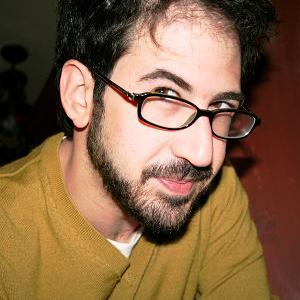“If there’s anything I can do,” she said
(a response in sum-over-histories* notation)
Sure, he replied, do it all, and walked out the door —
or maybe it wasn’t a door but the parted lips of the world
enveloping him, coaxing every hair on his body to rise
with its breath — or maybe not breath but a column of fire
streaking lugubrious revelation against the singing sand —
or maybe the sand wasn’t singing but laughing, laughing,
but quietly and to itself, matters only sand understands,
too granulated for sky, too particular for water — or maybe
he had become the water and drained himself down into
the mercurial tides, reined by the moon, breaching then
reforming — or maybe not reforming but misting outward,
reef-shattered, bearing more salinity than tears, lacking
only the heart that was no more than pummeled stone —
or maybe not stone but mirrored glass, silicon and silver,
shard and sliver, only cutting deep enough to prove itself
wrong — or maybe not wrong but then what? Something
less than perfect like a car or a coffee or a lake or a lover
or some grand unification theory, something to keep at bay
the long, cold days when the tides and fire both run low —
or maybe they run — just run — because they still believe
somewhere out there the world is parting its eager lips
just enough to insinuate an impudent, unyielding hope
that tomorrow won’t be the same as today — or maybe not
today but yesterday, the irreconcilable past when he said
Do it all and then walked out — or maybe not walked
but ran, ran upstairs laughing like the sand then, draining
back downstairs, curled up, with a book, on the couch.
by Scott Miller
*Sum-over-histories, a principle developed by physicist Richard Feynman, codifies the quantum mechanical notion that a wave packet traverses all possible paths available to it simultaneously with some non-vanishing (though often very small) probability. The observed state of such a wave packet therefore depends on a multitude of theoretical histories and their likelihoods. The usefulness of this methodology in deciphering interpersonal relationships is inherently obvious and needs no further elucidation.

Scott Michael Miller, a parolee of suburban Philadelphia, holds a degree in Mathematics from MIT; in December 2008, he earned an M.F.A. from Antioch University Los Angeles. His poems have appeared in Barefoot Muse and poeticdiversity, and he is a poetry editor for the Splinter Generation. Scott lives in Reseda, CA with his wife of seven years.
